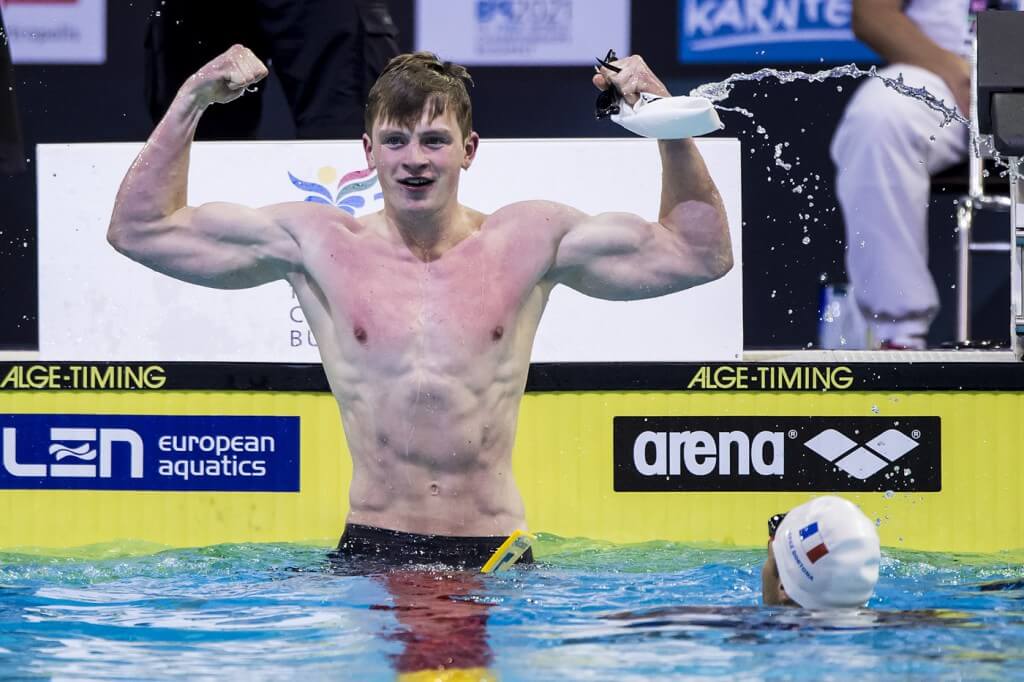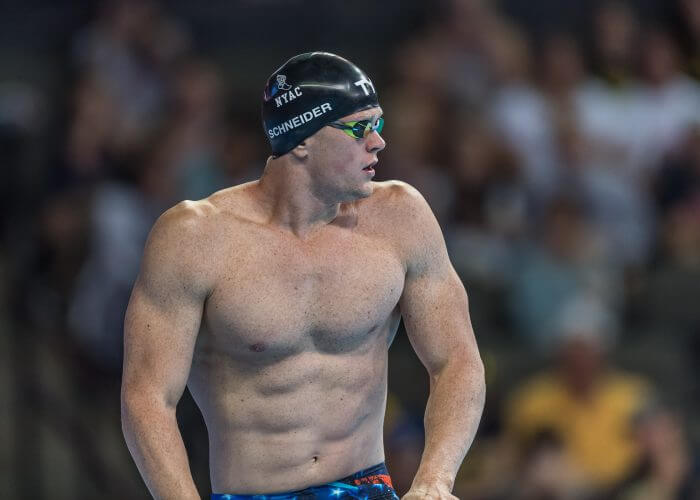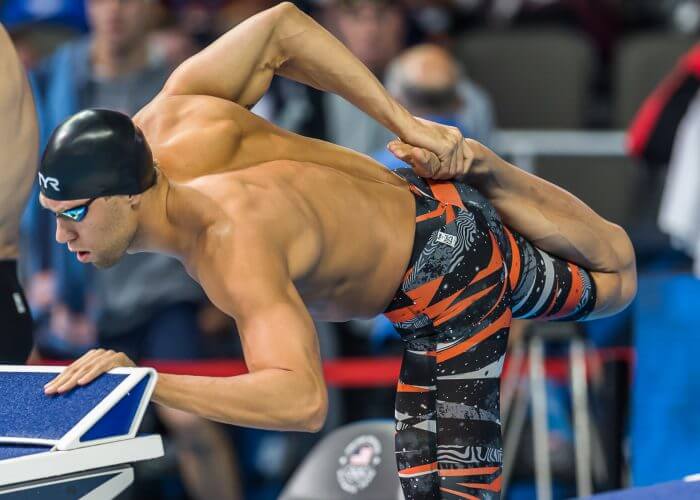The Importance of Off-Season Strength Training

by Benny Liang, Swimming World College Intern
With conference meets all wrapped up, most collegiate swimmers have the chance to wind-down and take a breather after a rigorous six months of training. Balancing your school work, swim practices, and social life can be very difficult, and it’s no argument that a break is well-deserved. However, it is important to stay vigilant. If you spend your entire spring and summer lying by the pool instead of swimming in it, you may find yourself struggling to catch up to where you need to be once the fall comes around.
There are three general ways we swimmers can improve in the off-season. We can improve technical ability (e.g. working on stroke technique, starts and turns, or perfecting race strategies), conditioning, and strength. I believe that building strength in the off-season is the best use of time and energy for several reasons.

Photo Courtesy: Peter H. Bick
In the summer season, there are no important weekly dual meets to be worried about. To put it another way, you can spend more time training and less time competing. Because of this, you have the opportunity to perform more heavy exercises that would otherwise be too taxing in-season. Rather than having to be concerned with over-training, you can focus on building muscle and gaining strength.
There’s no doubt that swimmers need to be in shape. Coming back to fall practices that can range well upwards of 6,000 yards is not fun if what you’ve been doing is playing water basketball all summer. Conditioning, while an important factor in a sport such as swimming, may not be as important as you think in the off-season.
How important is being in peak condition all year? College swimmers really only need to peak at their conference or national meets. Being in top-shape year round isn’t inherently a bad thing, it’s the fact that putting in the energy to maintain it is detrimental to the growth of strength and power. This thinking can also be applied to technical skills.
Strength training can negatively affect the execution of technical skills. Simply being more tired from lifting weights will do that. However, perfecting skills holds less value compared to building strength in the off-season. This is because your skills can be developed during taper, when you need them, while strength cannot.

Photo Courtesy: Peter H. Bick
Here’s what Conor Doherty of BreakingMuscle.com has to say about building strength in the offseason:
Let’s look at an example of a couple cookie jars with cookies in them to explain this maximum strength phenomenon. Let’s say we have two jars of cookies that are the same size. Let’s say these cookie jars represent two athletes who have the same amount of maximum strength. Now let’s say the cookies represent all of the other physical attributes in an athlete like speed, agility, power, and endurance. The size of the cookie jar determines how many cookies can fit inside.
The two athletes then spend the off-season doing two different training programs. Athlete #1 spends his off-season getting stronger, working on improving his maximum strength (i.e. growing his cookie jar). While athlete #2 stays in great shape, but doesn’t get any stronger. If we now look back at the cookie jar analogy, athlete #1 now has a larger cookie jar with the ability to put more cookies in his cookie jar. Or more clearly stated, athlete #1 now has a higher ceiling for how fast, quick, and agile he can get.
All because he got stronger. Maximum strength is that important for athletes.
So what will you be doing in the offseason? There are many different ways to improve, but if you want this year to be the best yet, then you already know what to do. Hit the gym!
All commentaries are the opinion of the author and do not necessarily reflect the views of Swimming World Magazine nor its staff.




Karen Laroche exactement ce qu’on disait tantôt 🙂
George Dorrington
Alison Tallen, check this out
Agree 100%.
Nikola Ustavdich mi cookie jar a crecido ??
Adriel Natan
Samuel Feiser
Kaitlyn Miller
Joe LaBianca
Lindsy Tudor-Cole
Peter Sameh Ezzat
Josie Stark Miranda Cruz
Lane Kuska
David Gordon Riley
Chris Neave